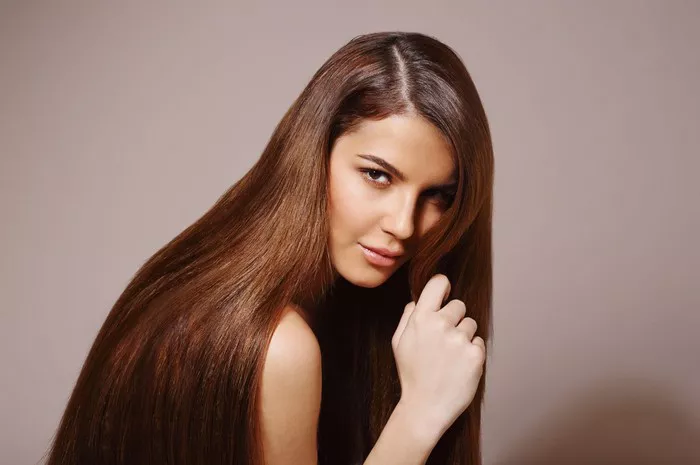Hair growth is a topic that interests many people, especially those looking to improve the health and length of their hair. While genetics, age, and hair care habits play a role, your diet is one of the most powerful tools for supporting strong, fast-growing hair. This article will explain how nutrients in food affect hair growth and provide a detailed list of foods to add to your meals for better results.
Understanding Hair Growth
Hair grows in three stages:
- Anagen (Growth Phase): Lasts 2–7 years. Hair cells divide quickly, pushing the hair shaft upward.
- Catagen (Transition Phase): Lasts 2–3 weeks. Hair stops growing and detaches from its blood supply.
- Telogen (Resting Phase): Lasts 3–4 months. Hair falls out, and the cycle restarts.
Nutrition affects the anagen phase most. A lack of key nutrients can shorten this phase, leading to thinner, slower-growing hair. Let’s explore the foods that fuel healthy growth.
Protein: The Building Block of Hair
Hair is made mostly of keratin, a type of protein. Without enough protein, hair becomes weak, brittle, or stops growing.
Best Protein Sources:
- Animal Proteins: Eggs, chicken, turkey, fish (salmon, tuna), Greek yogurt.
- Plant Proteins: Lentils, chickpeas, tofu, quinoa, almonds.
Daily Tip: Aim for 45–55 grams of protein daily. Add a handful of nuts to snacks or include fish in 2–3 meals weekly.
Biotin: The “Hair Vitamin”
Biotin (Vitamin B7) helps produce keratin and red blood cells, which carry nutrients to the scalp.
Biotin-Rich Foods:
- Eggs (cooked egg yolks are best)
- Nuts (almonds, walnuts)
- Seeds (sunflower, chia)
- Sweet potatoes
- Spinach
Note: Biotin deficiencies are rare, but supplements can help if approved by a doctor.
Iron: Oxygen for Hair Follicles
Iron carries oxygen to hair roots. Low iron levels (common in women) can cause hair thinning.
Iron Sources:
- Heme Iron (easily absorbed): Red meat, clams, oysters.
- Non-Heme Iron: Lentils, spinach, tofu. Pair with vitamin C (e.g., lemon juice) to boost absorption.
Daily Tip: A spinach salad with orange slices or bell peppers makes an iron-rich meal.
Zinc: Repair and Protection
Zinc supports oil gland function around hair follicles and repairs damaged tissue.
Zinc-Rich Foods:
- Oysters (highest source)
- Pumpkin seeds
- Beef
- Chickpeas
Caution: Too much zinc can harm hair, so stick to food sources unless a deficiency is confirmed.
Vitamins A, C, D, and E
Vitamin A
- Role: Produces scalp oil (sebum), which keeps hair moisturized.
- Sources: Carrots, sweet potatoes, kale.
Vitamin C
- Role: Makes collagen (strengthens hair) and helps absorb iron.
- Sources: Oranges, strawberries, bell peppers.
Vitamin D
- Role: Activates hair follicle growth. Low levels link to hair loss.
- Sources: Sunlight, fatty fish, fortified milk.
Vitamin E
- Role: Protects hair from sun and pollution damage.
- Sources: Almonds, sunflower seeds, avocados.
Omega-3 Fatty Acids: Scalp Health
Omega-3s reduce inflammation and keep the scalp hydrated.
Omega-3 Sources:
- Fatty fish (salmon, mackerel)
- Flaxseeds, chia seeds
- Walnuts
Daily Tip: Add ground flaxseed to smoothies or oatmeal.
Hydration: Water for a Healthy Scalp
Dehydration dries out the scalp, leading to brittle hair. Drink at least 8 cups of water daily. Herbal teas and water-rich foods (cucumbers, watermelon) also help.
Foods to Avoid
- Sugary Foods: Spike blood sugar, causing inflammation and hair loss.
- Processed Carbs (white bread, pasta): Lack nutrients and harm scalp health.
- Alcohol: Dehydrates the body and reduces zinc levels.
Sample 2-Day Meal Plan for Hair Growth
Day 1
- Breakfast: Spinach omelette + orange juice.
- Snack: Greek yogurt with almonds.
- Lunch: Grilled salmon salad (mixed greens, sunflower seeds).
- Dinner: Lentil soup + quinoa.
Day 2
- Breakfast: Oatmeal with chia seeds and strawberries.
- Snack: Apple slices with almond butter.
- Lunch: Turkey sandwich on whole-grain bread + carrot sticks.
- Dinner: Stir-fried tofu with broccoli and bell peppers.
Conclusion
Eating a balanced diet rich in protein, vitamins, and minerals is the best way to support fast, healthy hair growth. Combine these foods with gentle hair care and patience for the best results. Remember, consistency is key—your hair reflects your overall health!
Related topics:
What Do I Eat to Make My Hair Grow Faster?
Top 10 Drinks that Make Your Hair Grow Faster
10 Essential Nutrients That Make Hair Grow Faster


